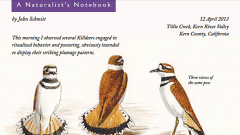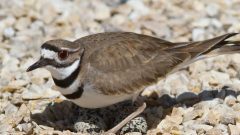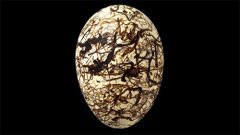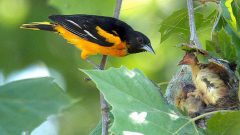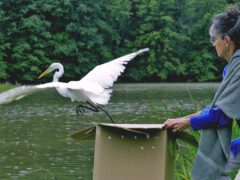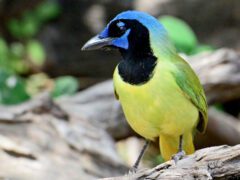Killdeer Similar Species Comparison
Main SpeciesKilldeer
Adult
Slender shorebird with long wings and tail. Adults have 2 black breast bands.
© Brad Imhoff / Macaulay LibraryOhio, March 25, 2020Adult
Adults perform broken-wing displays to distract predators from their nests and young. Note rusty tail in flight.
© Bonnie Ott / Macaulay LibraryMaryland, March 31, 2016Adults and juvenile
Both adults and juveniles habitually pause while walking to bob their heads up and back down. Call note is a thin, piercing "dee" note.
© Jay McGowan / Macaulay LibraryNew York, June 16, 2015Chick
Chicks can leave the nest as soon as their downy feathers dry out. Downy juveniles have a single breast band.
© Jay McGowan / Macaulay LibraryNew York, May 29, 2015Adult
Slender shorebird with long wings and tail. Brownish above and white below with 2 black breast bands.
© Ryan Schain / Macaulay LibraryMassachusetts, May 22, 2010Adult
Found in open areas such as sandbars, mudflats, grazed fields, lawns, driveways, athletic fields, parking lots, airports, and golf courses.
© Charlie Shields / Macaulay LibraryIllinois, February 26, 2017Adult
Found in dry, flat landscapes, running and halting on the ground in search of insects and earthworms.
© Scott Glosserman / Macaulay LibraryMassachusetts, May 23, 2017Similar SpeciesWilson's Plover
Breeding adult
Wilson's Plovers are smaller than Killdeers and have only one breast band.
© Chris Wood / Macaulay LibraryFlorida, April 23, 2007Similar SpeciesSemipalmated Plover
Breeding adult
Semipalmated Plovers are smaller with a stubbier bill than Killdeer. They also have a single breast band instead of two.
© Ross Gallardy / Macaulay LibraryIllinois, June 11, 2016Similar SpeciesSemipalmated Plover
Nonbreeding adult
Semipalmated Plovers are smaller with a stubbier bill than Killdeer. They have a single breast band instead of two.
© Daniel Jauvin / Macaulay LibraryQuebec, October 01, 2016Compare with Similar Species
Click on an image to compare
Species in This Family
Plovers and Lapwings(Order: Charadriiformes, Family: Charadriidae)
More to Read
Don't miss a thing! Join our email list
The Cornell Lab will send you updates about birds,
birding, and opportunities to help bird conservation.











